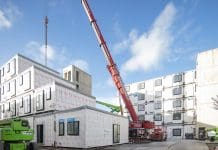The Equality and Human Rights Commission has launched ‘Following Grenfell’, to look into the human rights and equality dimensions of the tragedy, and to determine if the State is fulfilling its duties under human rights and equality law
Following Grenfell will focus on seven key areas:
- The duty to investigate
The State has a duty to investigate incidents of deaths or inhumane and degrading treatment where they may be implicated, and ensure proper accountability. This project will examine how the State is investigating Grenfell and whether current arrangements meet its obligations. - The right to life
Following Grenfell will consider whether the State ensured the safety of the residents in Grenfell Tower and whether lessons have been learnt from previous reports. - Inhumane and degrading treatment
The harm suffered by those who survived or witnessed the Grenfell Tower fire may constitute ‘inhumane and degrading treatment’, and the experiences of those after the fire may have increased the harm they endured. The Commission will be exploring what immediate and longer-term support victims of such events can expect from the State, including medical treatment, counselling, care and housing. - Adequate housing
The State had a duty to provide adequate and safe housing to the Grenfell Tower residents. This project will particularly focus on children, disabled and older people whose needs may not have been fully respected and understood within the fire regulations. - Access to justice
The project will consider whether victims have been able to access appropriate legal advice after the fire, but also question whether a lack of access to legal support may have affected residents’ ability to address complaints about the risk of fire at Grenfell Tower. - Rights of children
The Commission will also be examining the specific rights of children and whether they have received appropriate psychological support, housing and educational support since the fire. - Equality
The work will also explore whether there were any policies and practices in place that disadvantaged any particular groups, such as disabled people or the elderly, and if the State met the requirement of the Public Sector Equality Duty.
David Isaac, Chair of the Equality and Human Rights Commission said:
“The Grenfell Tower fire has become a symbol of the inequality that exists in our country. Seventy-one people tragically lost their lives, as well as the many people who lost their homes, possessions, families and loved ones. The first duty of the State is to protect the lives of its citizens and lessons must be learnt to avoid this happening again.
“From the right to life to the duty to provide adequate housing, there are several areas where the State fell short in its duties to its citizens and these must be properly addressed. The official public inquiry is rightly looking at the building, fire and safety measures, property management and the events of the fire itself, but we believe our expertise in equality and human rights laws is essential in determining the extent to which the State failed, not only the residents of Grenfell Tower, but also those who witnessed the fire and have endured harm, physically or emotionally, as a result of it.”
Following Grenfell will hear from a variety of people who can offer insight into the events at Grenfell Tower, with a specific focus on the equality and human rights implications. The Commission will also be making public submissions, and will offer commentary on the evidence heard by the Public Inquiry.
The work is expected to last until April 2018, with regular updates on its progress published on a dedicated webpage.
As Following Grenfell concludes, a summary of the findings will also be published, as well as recommendations to ensure similar tragedies do not occur in future.






![[Video] Enhancing safety with fire doors: A case study of Marina Care Home](https://www.pbctoday.co.uk/news/wp-content/uploads/2025/06/maxresdefault-218x150.jpg)



![[VIDEO] Making DorTrak reports easy to read with Fireco Inspecting fire doors at Fireco, firedoor technology, 2023](https://www.pbctoday.co.uk/news/wp-content/uploads/2024/04/JPZ_2364-web-218x150.jpg)


